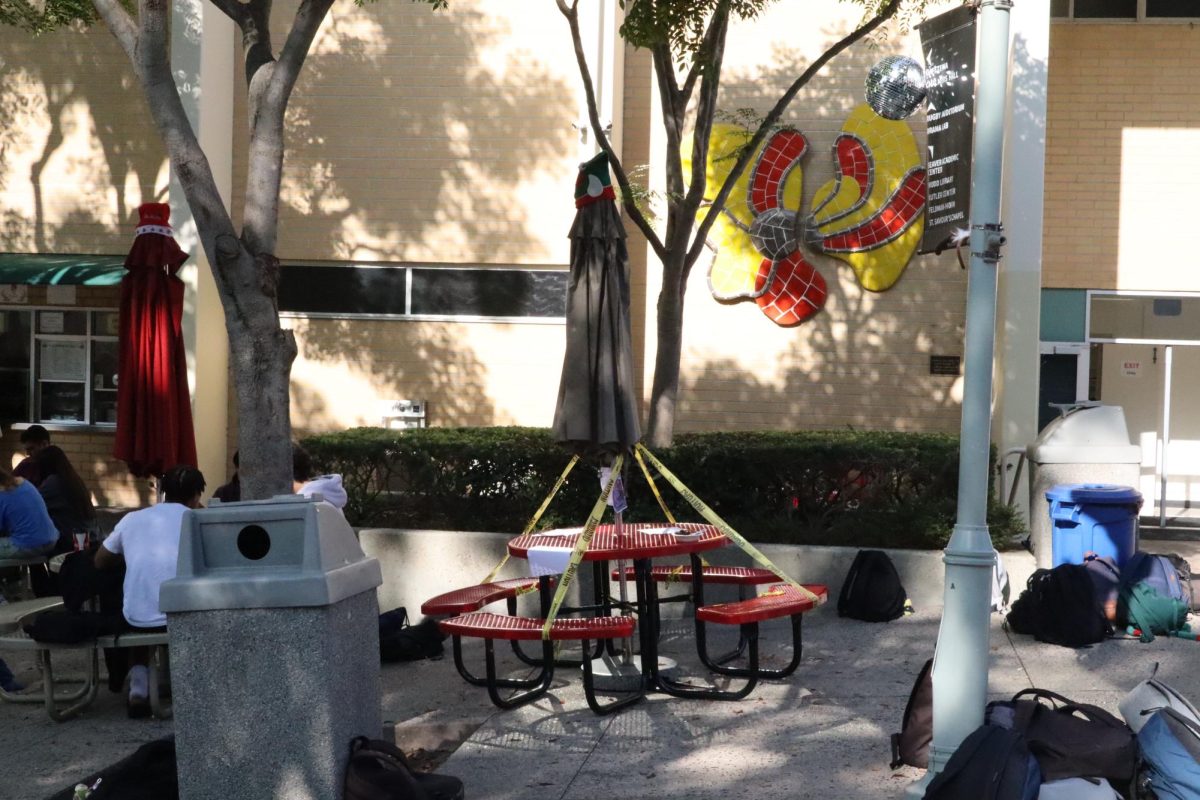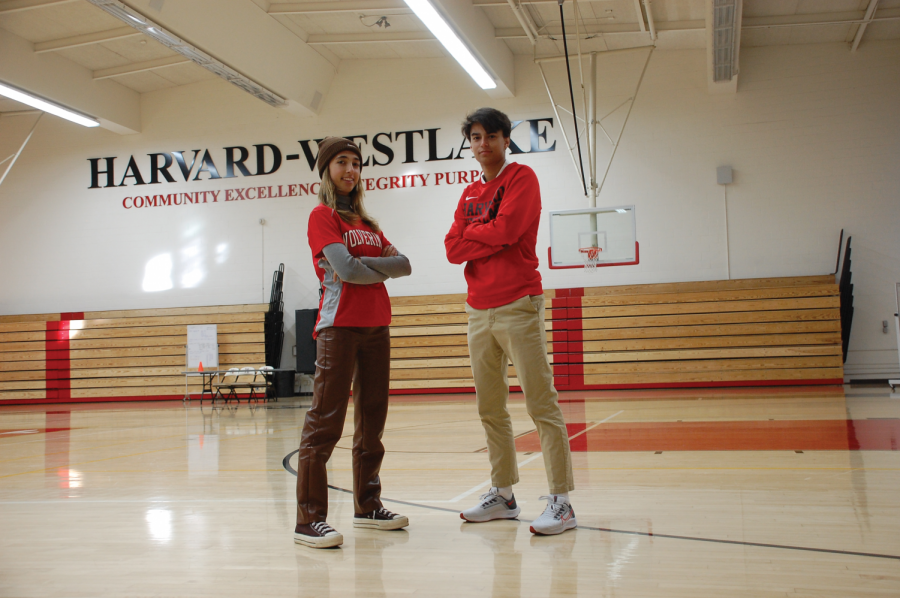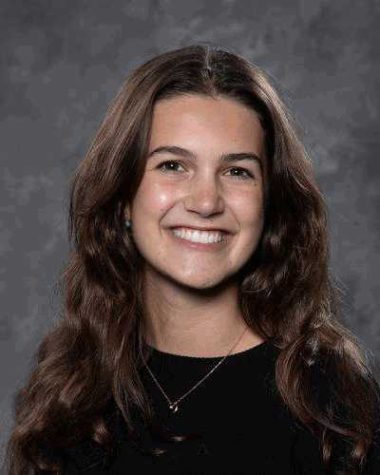A Manager’s World: The Sideline Story
MANAGING MASTERS: Sports Section Editor Maxine Zuriff ’22 and News Section Editor Josh Silbermann ’22 are two of the boys basketball team’s managers. Zuriff and Silbermann fulfill their managerial duties by recording the statistics of each player, controlling the scoreboard, resetting the shot clock during games and helping the program’s coaches set up practices drills.
December 17, 2021
Manu Markman ’23 spent his freshman year perched atop the school bleachers, recording footage of the boys JV Soccer games for the team to review in practices. One year later, Markman stepped onto the field for the first time—no longer as the team’s manager but as a midfielder in a game against Palos Verdes High School on March 12.
Over the course of the pandemic, Markman made the transition from JV boys soccer team manager to midfielder. He said his experience as the team’s manager eased his switch to playing on the field.
“[The switch] was sort of natural,” Markman said. “The team manager role familiarized me with the vibe on the soccer team and helped me have a seamless transition into playing.”
Markman’s involvement in the boys soccer program began as manager his freshman year, when he said he was cut from the roster. Markman said he signed up to be the team’s manager in hopes of positively impacting the boys soccer team. He said the importance of the sport in his childhood led him to continue to want to be a part of the program.
“I’m from Argentina, and I was raised in an atmosphere where you had to play either soccer or rugby,” Markman said. “I really liked soccer, and growing up, it was a really big part of my life.”
Markman said in order to become a team manager, students must sign up for the position when completing their course selections in the spring and then reach out to the coach of the team they are interested in managing in August of the following year. The student and coach then set up a schedule and establish the student’s managerial duties for the team’s entire season.
In addition to spending time with the soccer team and familiarizing himself with its dynamic, Markman said his position as manager allowed him to appreciate the traditionally overlooked aspects of athletics.
“Being a team manager challenged me to open my mind,” Markman said. “[Team managing] challenged me in that it made me appreciate the background work that occurs in professional sports teams and, even on a more macroscopic level, in every sector of our economy because it makes you think about the importance of the people in the background who also contribute to a cause.”
While Markman shifted from the role of team manager to player, Stella Glazer ’23 made the opposite transition, quitting girls basketball during the pandemic to manage the Varsity team instead. Glazer said although she decided to stop playing, she wanted to remain involved in the program.
“I quit because I needed to prioritize my mental health, and playing on the team was such a big commitment,” Glazer said. “As much as I loved it, I just did not have enough time for self-care. After I stopped playing, I still really wanted to continue to be a part of the team, so I decided to come back as a manager because I really love watching basketball, and I love all the girls on the team.”
Glazer said her longstanding relationship with Girls Basketball Program Head Melissa Hearlihy helps her take on an involved role in aiding the team’s players and coaching staff.
“Being that I used to be coached by [Hearlihy], we’ve always had great communication,” Glazer said. “The best thing to do is just to be overly communicative and always keep her up to date, so if I have to miss a game, I let her know right away. Other than that, [the responsibilities are] mostly just talking about game times and technical things.”
Glazer said her managerial duties require her to attend every game and tally each player’s statistics.
“My obligations are to go to all games that I’m able to attend, and I record teams’ [statistics], like personal points, fouls [and] rebounds,” Glazer said. “The most fulfilling part is being able to help out all the coaches and take a load off their back by recording [statistics] for them so that they’re able to focus on coaching.”
Hearlihy said Glazer has integrated cohesively with the players, becoming an important part of the team as a manager and lightening Hearlihy’s workload as a coach.
“[Glazer] is part of a pilot program for home games where she keeps the game stats on an iPad that feeds to the live stream broadcasters and will produce stats at the end of the first half and game,” Hearlihy said. “Knowing that I have someone to [record stats] on away games is a huge help.”
Because Glazer previously played on both the middle school and JV girls basketball teams, Hearlihy said she was excited to keep Glazer as a part of the program.
“She is someone who you hope to see every day because she makes you smile,” Hearhily said. “[Glazer is] always very helpful and does whatever you need. I knew she would be great to have back in the program. [Glazer] is friendly with the juniors whom she played with as a freshman as well as [the team’s] two seniors. They are all friends.”
Glazer said while she misses playing with her former teammates, she enjoys being able to connect with the players through her role as team manager.
“When I’m watching the games, I definitely do miss it, but I really enjoy being the manager too,” Glazer said. “I mostly just let [the players] do their thing and help them out with whatever they need, whether that means refilling someone’s water or keeping an inhaler safe.”
While Glazer turned to managing to prioritize her mental health, Savannah Walske ’22 said she became the team manager of the Varsity girls tennis team after a wrist injury prevented her from playing this season. As a manager, Walske’s obligations included setting up the scoreboard and recording the team’s lineup, statistics and game results. Walske said she was able to better manage the program because of the connections she built as a former member of the team.
“The team manager position allowed me to still cheer on my teammates from the sidelines while also making an impact on this year’s tennis team,” Walske said. “I really treasured being able to connect with the current tennis team even though I was not able to play tennis [on the school’s team] this year.”
Walske said managing the team allowed her to gain a newfound perspective beyond her experiences as a player.
“I had the chance to connect with players I had not yet met during my time as team manager for the tennis team, although not as much as if I had been an active player on the team,” Walske said. “Although I didn’t have to do anything [too] challenging, there were, at times, a lot of things I had to keep track of at once.”






























